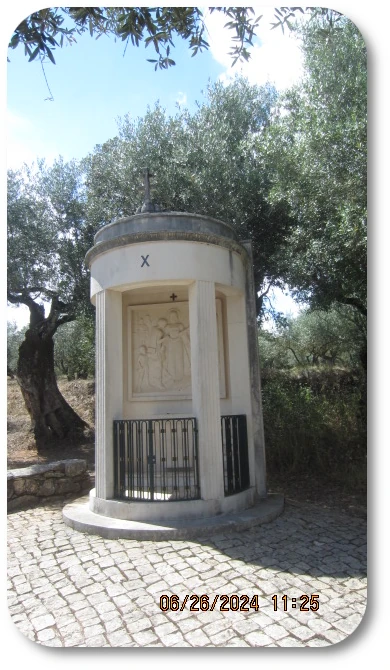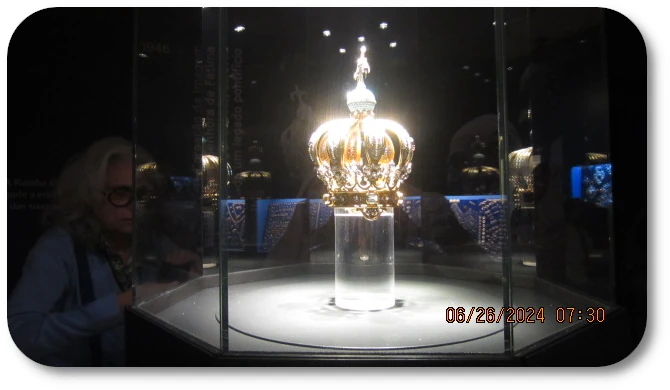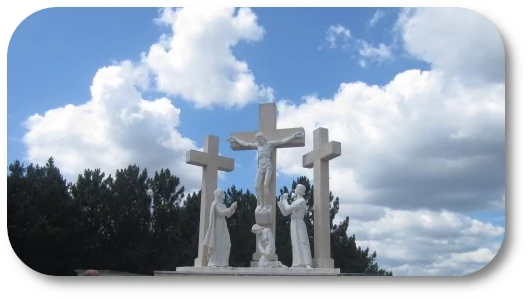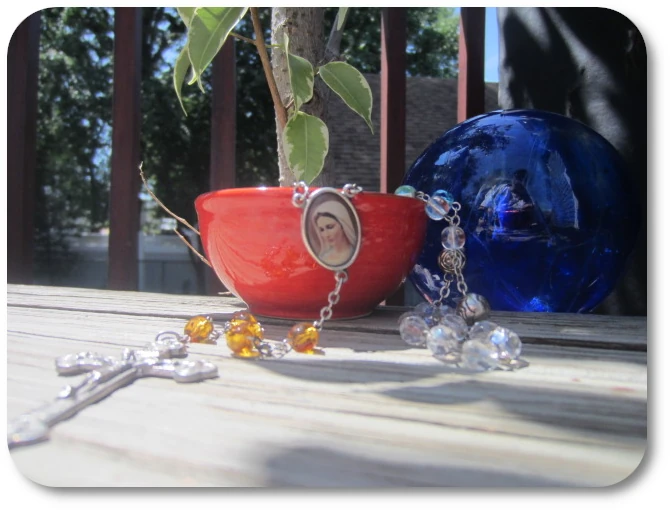- Rosary
- Station Options
- Via Crucis Stations
- Station 10
Via Crucis Station 10
The Via Crucis Station 10 of the Cross, where Jesus is stripped of His garments, is significance in the Passion narrative. The Roman soldiers attempt to continue to humiliate Jesus by taking His tunic from Him to cast lots amongst themselves.
I realize the humiliation and how I might feel of being stripped. I think about anyone that may be imprisoned stripped of their personals and given a prison uniform. Stripped of dignity in a vulnerable state of mind. This station does give me a chance to grow in my understanding of Christ's suffering and sacrificial love for me.
It provides a better understanding of serving others with humility, dignity and compassion in their time of need. Especially when someone has grown old and unable to help themselves, or even someone who is very sick and on their death bed. Jesus was very near His death bed and the Soldiers made it a point to strip Him of His dignity in front of all to see.
As I stand here with other's around me contemplating this station, I stand united with these friends, family and strangers with the suffering and embrace my own vulnerabilities. Together we participate in the prayers that transforms me with God's grace.
The Via Crucis Station 10 challenges me to let go of my pride, to be open to the healing power of God's mercy, and to work towards a more just and compassionate world. By following the example of Jesus, who willingly endured humiliation and shame for the sake of humanity, I can become an instrument of His love and redemption in the world.
Jesus is Stripped of His Garments

Via Crucis Station 10 - Valinhos Sanctuary
V. We adore Thee, O Christ,
and we praise Thee.
R. Because by Thy holy Cross,
thou hast redeemed the world.

Prayer
My innocent Jesus, by the merits of the painful torment Thou hast experienced, help me to strip myself of all affection to things of earth, in order that I may place all my love in Thee.
The Way of the Cross of Saint Alphonsus Liquori
Our Father...
Hail Mary...
Glory Be...
v. Have Mercy upon us O Lord.
r. Have Mercy on us.
May the souls of the faithful departed, through the mercy of God, rest in peace.
Praying for the Vulnerable
Saint Alphonsus Liquori says it beautifully in this prayer for the help to strip myself of all affection of worldly things. This is so true of our attachments to worldly things. For the past 8 or so years I have been practicing detachment from things. Things I really don't need to have just for the sake of having. I find it to be very freeing for many reasons.
Praying for those who are stripped of their dignity and rights, such as victims of human trafficking, refugees, and the homeless. Lord, I ask for the strength to be a voice for the voiceless and to work for justice and peace.
By lifting up the vulnerable in prayer, we unite our hearts with the compassionate heart of Christ.

Ponder as Mary Pondered
Sit or stand in silence and be present with the scene of the 10th Station. Allow yourself to be open to the presence of God and to receive any insights or emotions that arise. This form of prayer can help you connect more deeply with the mystery of Christ's suffering and His love for you.
Depending on where you are walking or climbing to reach each station of the cross it can be challenging mentally and physically. Here is where I take the opportunity to ask for help as I experience this moment.
Stripped
The stripping of Jesus teaches us about the power of redemptive suffering. Jesus' willingness to endure humiliation and shame for the sake of humanity transforms our understanding of suffering. It becomes a means of grace, drawing us closer to God and inviting us to participate in the mystery of salvation.
This station calls us to stand in solidarity with those who are stripped of their dignity and rights.
Jesus' willingness to be stripped of His dignity challenges us to let go of our pride and to open ourselves to the transformative power of God's grace. By acknowledging our own vulnerabilities, we can grow in compassion and empathy for others.
Casting Lots
I had read that Mary made this tunic for Jesus when he was born, and that as he grew and aged this tunic also grew with Him. It was a seamless tunic and stated below and couldn't be divided amongst the soldiers. Is this another mystery to ponder or dive deeper into research?
Another point to ponder is what ever became of His Clothing?
Casting lots for a condemned person's clothing was a common practice among Roman soldiers. It was seen as a fringe benefit of their grim duties. The soldiers would divide the garments among themselves, and if there was an item that couldn't be easily divided, such as a seamless tunic, they would cast lots to determine who would keep it.
The seamless tunic worn by Jesus is mentioned specifically in John 19:23-24. This tunic, woven in one piece from top to bottom, was a valuable item. Rather than tearing it apart, the soldiers cast lots to see who would take it. The seamless tunic can be seen as a symbol of Jesus' unity and wholeness, even in the face of suffering and division.
The fate of Jesus' clothing is not detailed in the Gospels beyond the fact that the soldiers divided it among themselves. However, the seamless tunic has taken on significant symbolic meaning in Christian tradition. It represents the unity of the Church, which, despite human sinfulness and division, remains whole and undivided through the grace of Christ.
